FORT LEAVENWORTH, Kan. (April 29, 2010) -- Secretary of the Army John McHugh met with Combined Arms Center leaders and students from the Command and General Staff College when he visited Fort Leavenworth April 27.
It was McHugh's first visit to CAC and Fort Leavenworth since becoming the 21st secretary of the Army, Sept. 21, 2009. McHugh said he also had never visited Fort Leavenworth when he was in Congress and served on the House Armed Services Committee.
"I've heard a lot of briefs on the efforts that are ongoing here, but there is no substitute for going here and talking to great leaders like (Lt.) General Bob Caslen and the entire command staff as to what they do on a day-by-day basis, how they view their mission, what they may or may not need in addition to what has been provided," he said.
McHugh said he wanted to do two things during his visit to CAC and Fort Leavenworth.
"First, we want to be sure we are providing the training to create the best leaders possible for today and whatever the future may hold," he said.
"The other thing that happens here very importantly to the on-going fight is it is the place where lessons learned are synthesized and distilled down into training and doctrine programs and disseminated back to the theater so we're being highly agile and reactive to what's happening in Iraq or Afghanistan," McHugh said.
After meetings with students from the Intermediate Level Education course and the School of Advanced Military Studies, McHugh said he was impressed.
"By every measure of what I saw today, it was uplifting. I think the students were incredible in their skills and their enthusiasm for this program. They're interested in trying to be the best leaders in the Army of the future and felt that they were getting a year to grow their skills and reach their greatest potential."
McHugh said he wanted the students' honest impressions of the training they are receiving at CGSC.
"All of the Soldiers I met with today have been downrange, they've been in the fight, they've seen it, lived it," McHugh said. "I wanted to assess their opinions of what's going on here and of what value it is to the ongoing persistent conflict.
"You always fear that you're behind the times, that you're not providing the training environment and educational experience that they find of value. If anybody felt that way, they didn't say it. I was very pleased with the positive comments about what happens here. That was mission one for me - to make sure we're not just providing a campus, that what happens here is in tune to the realities of our force today."
One of the realities in today's Army is an operational tempo that is putting stress on Soldiers and their families. McHugh said he and Army Chief of Staff Gen. George W. Casey Jr. are always looking at how the Army can improve the way it is helping Soldiers cope with stress.
"Probably the most prominent (way to reduce stress) is to increase dwell time," he said. "Eight plus years of persistent conflict, deployment after deployment - sometimes that dwell ratio is 1-to-1 (years) or 1-to-1.2 and it stresses the Soldier and his or her family. I made a commitment to extend the dwell time at home with an objective of 1-to-2 by the end of 2011 (for the active component)."
McHugh said the ultimate objective is to have a 1-to-3 deployment to dwell time ratio for the active component and a 1-to-5 ratio for the reserve component.
"We know from studies that we've had available to us that it takes at least two to three years to get back to what we call a garrison level of stress - to recover from a wartime deployment," he said. "Obviously, a lot of the force is operating far from that standard."
With the drawdown of forces in Iraq, and even considering the increase in operations in Afghanistan, McHugh said he and Casey anticipate having 70 percent of the active force on a 1-to-2 dwell ratio by 2011.
"There are a lot of things we have to do - and not just be reactive - in providing post-deployment programs," McHugh said.
"What we're really trying now is to provide programs to help people avoid developing an overreaction to stress," he said. "My predecessor Pete Geren and General Casey were leaders in developing the Comprehensive Soldier Fitness Program - that's a program to help people build resiliency."
McHugh said he visited noncommissioned officers in resiliency training at the University of Pennsylvania a few weeks ago and was impressed with the program.
"(Master Resilience Trainers) will go back into the force and develop the skills that are necessary to cope with stress, whether it's because of a deployment or stress that all of us as human beings encounter," McHugh said. "We want that to expand to the families, who are obviously an important part of the equation."
The training has been well received, McHugh said.
"It was a lot fun to see these tough, wizened NCOs, who probably aren't normally known for their touchy-feely perspective, just enthusiastically embracing this program and looking forward to getting back to their troops and helping them."
"We're taking a holistic approach to this; it continues to be a struggle, and we still have a long, long way to go," McHugh said.
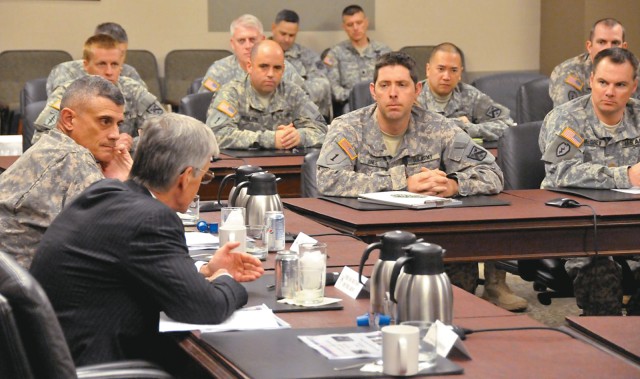
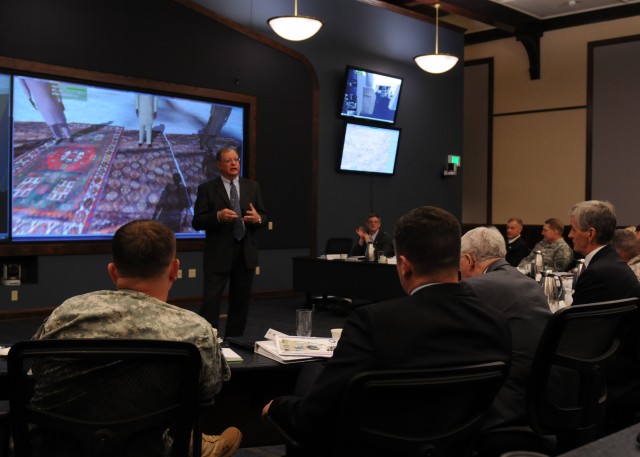
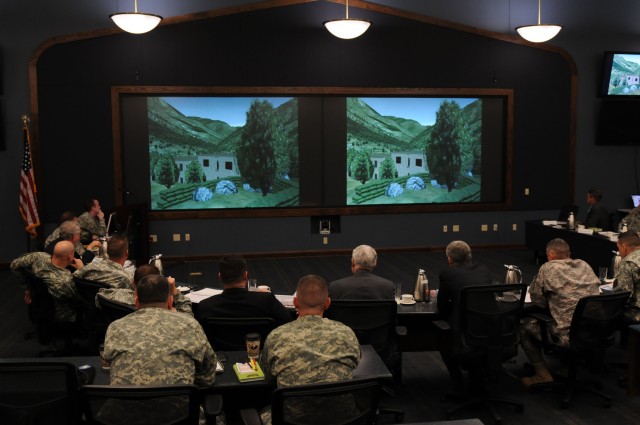

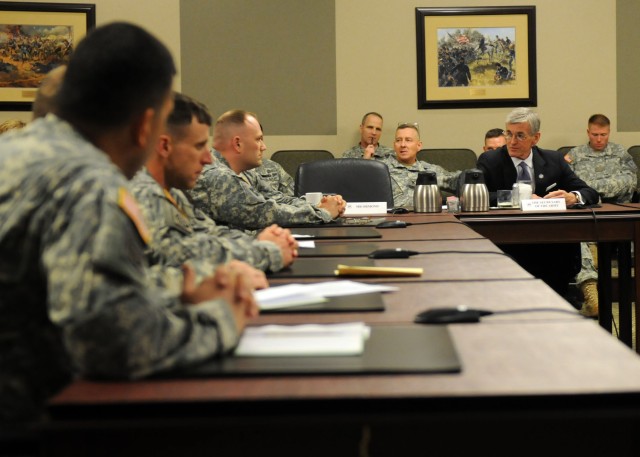

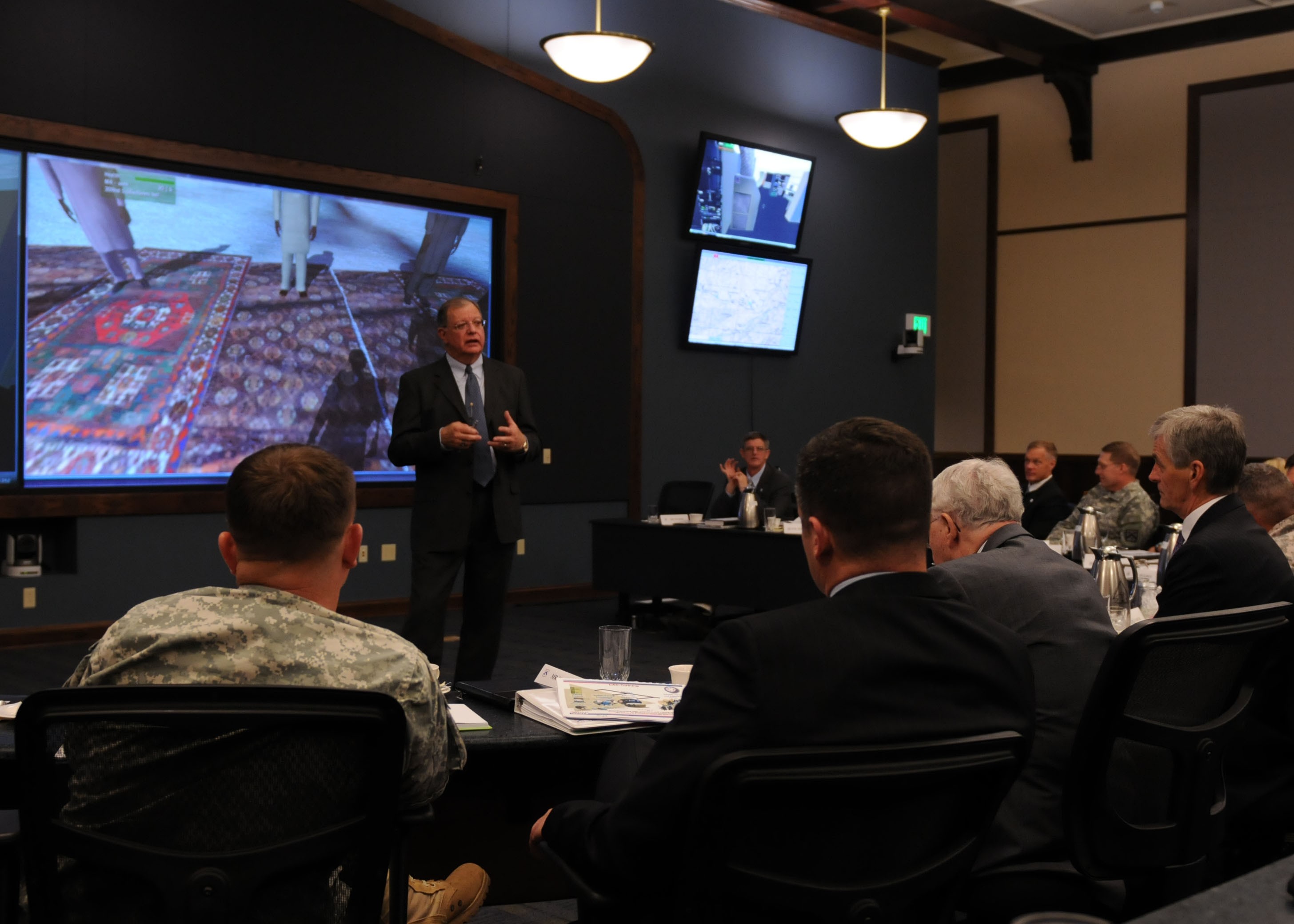



Social Sharing